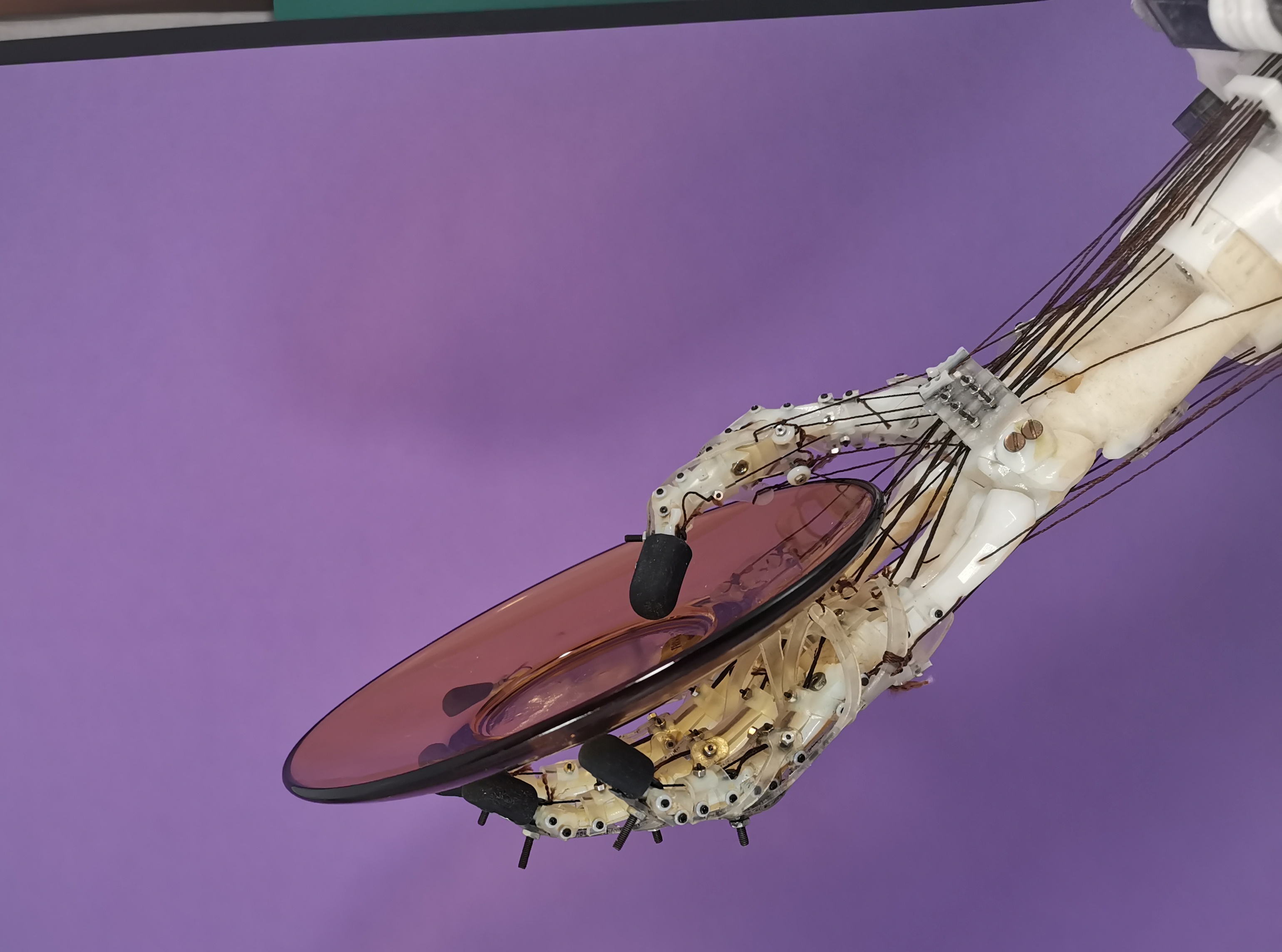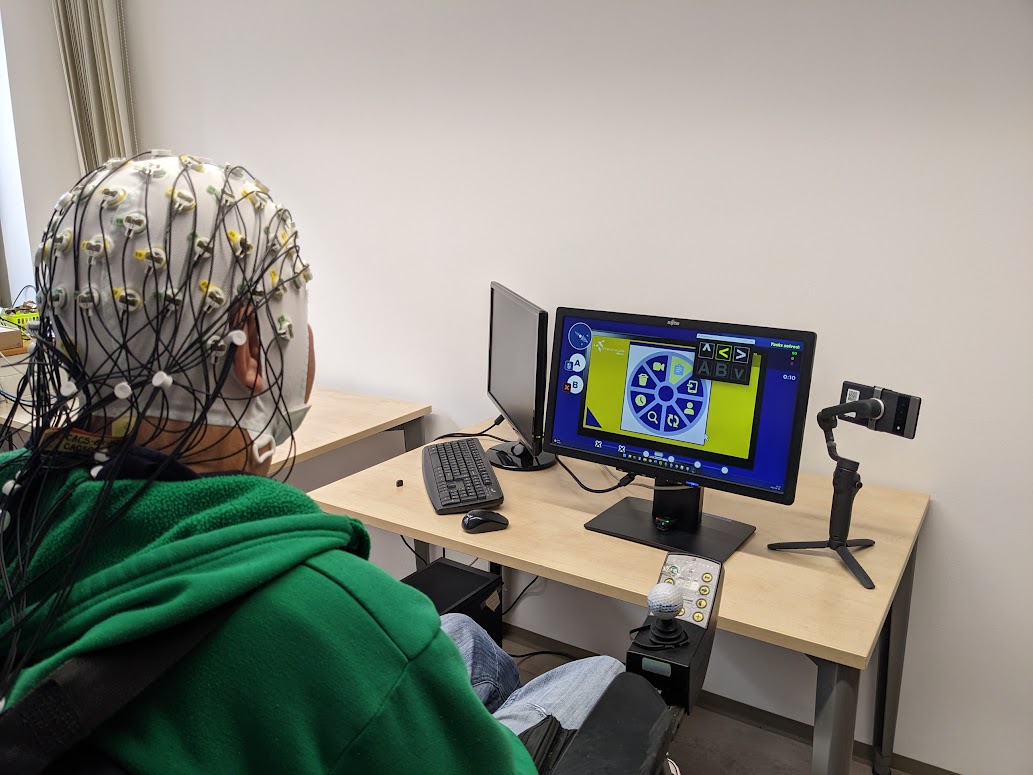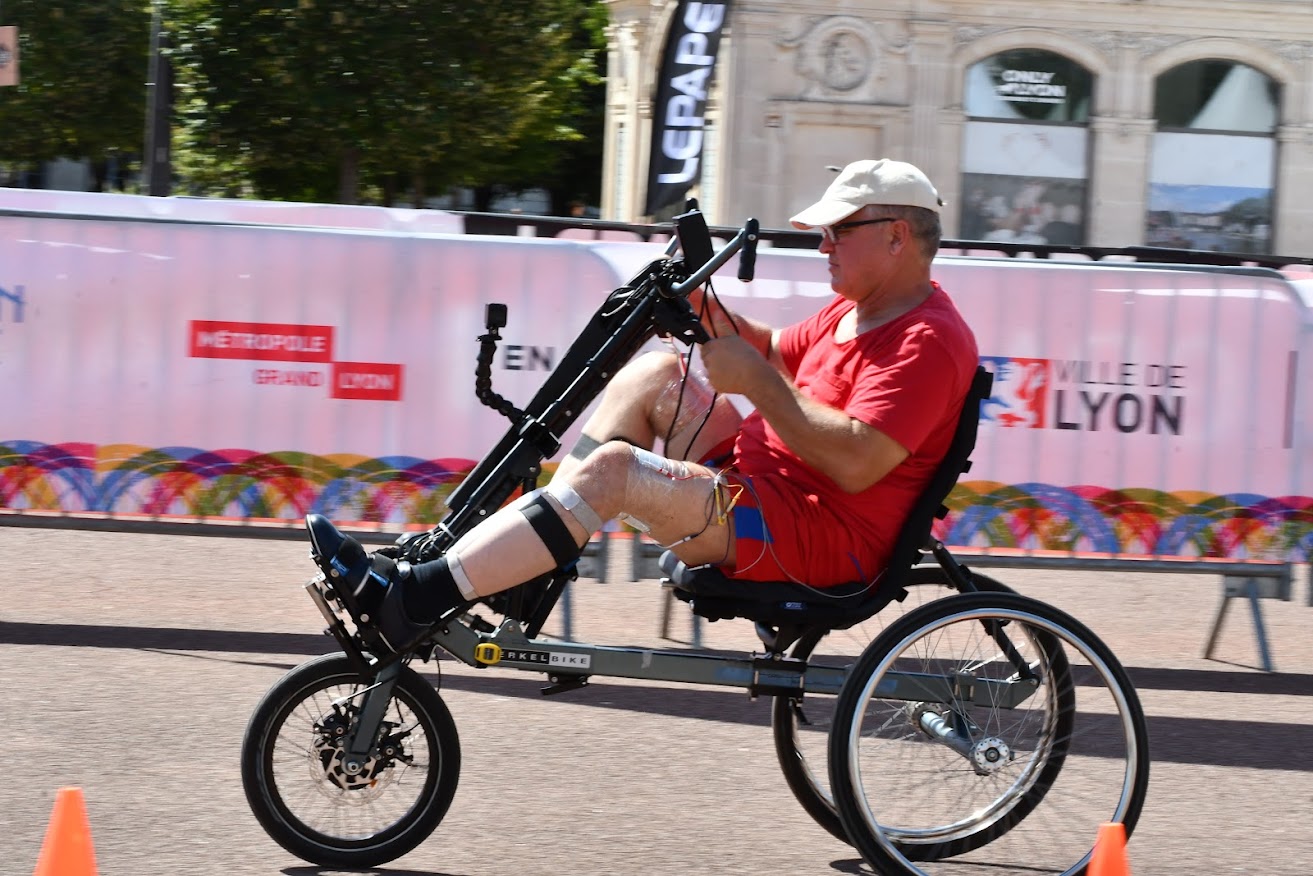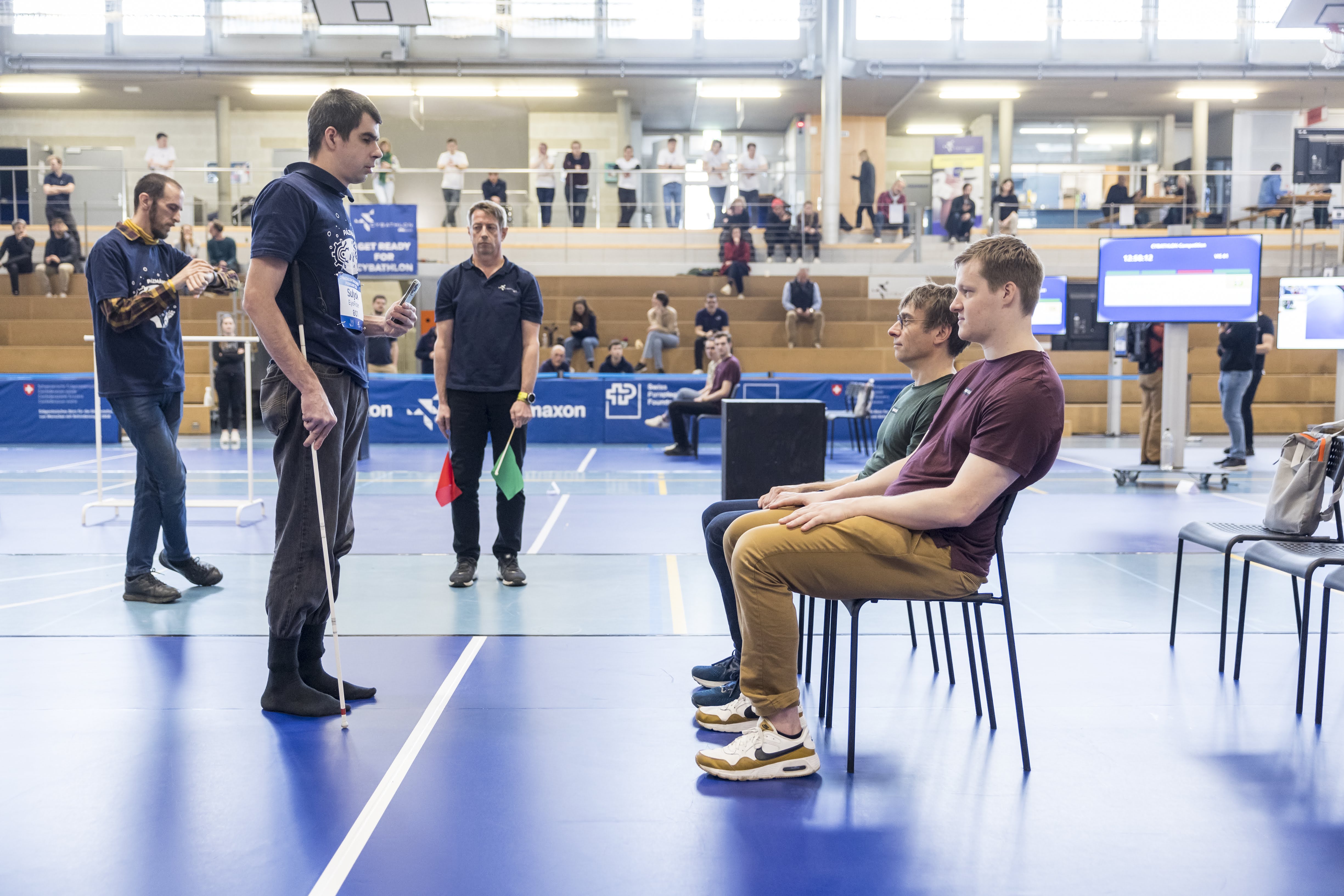Achievements
The "Bionics olympics"
The Cybathlon, often referred to as the "bionics olympics," is a unique competition organised by ETH Zurich. It challenges teams worldwide to develop assistive technologies that can be used by individuals with disabilities in everyday tasks. Our research and development areas align with many of the competition challenges. The event includes races in 8 disciplines such as brain-computer interfaces (BCIs), functional electrical muscle stimulation (FES), prosthetic limb control (ARM), device development for the visually impaired (VIS) and smart wheelchair development for the physically impaired (WHL). International technological competitions like Cybathlon are crucial for multiple reasons. They provide a platform for innovation, encouraging teams to develop cutting-edge assistive technologies. Participating in such competitions also raises awareness about the challenges faced by people with disabilities and showcases how technology can address these. Moreover, it motivates teams to push the boundaries of their research and development, ultimately leading to real-world applications that can significantly improve the quality of life for individuals with disabilities. It is also an important place to show the current state of the art and increase visibility to research groups that work on these solutions.
Related to the hand prosthesis race (ARM) of Cybathlon, our research group led by Benedek Tasi is working on developing advanced bionic limbs by reverse-engineering human hand anatomy and biomechanics. They specialise in creating and integrating materials that mimic tissue structures through innovative fibre and textile technologies. Their prototype is a highly sophisticated robotic hand designed for precision, strength and most of all, to feel natural. The research group is also working on control technologies ranging from electrophysiological interfaces to smart sensory gloves, spanning various applications including robotics, prosthetics, and teleoperation. The group has a strong focus on the everyday applicability of their prototypes and the marketability of their technologies as products.

Our anatomically correct hand prosthesis can gently grab delicate objects.
In connection with the Brain-Computer Interface (BCI) race of Cybathlon, our research group led by Dr. Csaba Márton Köllőd is working on the development of algorithms to convert brain signals into control commands for a digital device. The developed BCI system allows people paralyzed from the neck down to perform everyday tasks in a virtual scenario, such as controlling an electric wheelchair, a robotic arm or the cursor of a computer using only their brain waves, the EEG signals. This innovative approach not only demonstrates the practical applications of BCI technology, but also highlights the potential for enhancing the independence and quality of life of people with severe disabilities. Our BCI research group was one of the first research groups from Hungary to participate in the Cybathlon events back in 2016.

The setup of the BCI Cybathlon race can be seen with the Pilot navigating the screen with the BCI controlled mouse.
Related to the functional electrical muscle stimulation (FES) race of Cybathlon our research group led by prof. József Laczkó is working on developing stimulation patterns, training protocols for FES cycling training of paraplegics. Our Pilot, Csaba Szamosi was involved in optimising the developed protocols. Our team uses the Berkelbike Pro tricycle, which is a hybrid tricycle that can be driven by legs only, by arms only and simultaneously by the legs and arms as well. For FES driven leg cycling it is equipped with a 6 channel programmable electrical stimulator device that allows it to control FES driven leg cycling of paraplegics. Also, the team has previously developed their own stimulation device that can be used in any overground biking or stationary training applications. Members of several institutions participate in the development of the stimulation patterns and training protocols: PPKE ITK, Wigner Research Centre for Physics, the University of Pécs and the National Institute for Medical Rehabilitation in Hungary. For the FES biking race the HunFess team combines technical sciences, natural sciences and medical sciences, and our aim is to foster FES based rehabilitation of spinal cord injured people.

Our pilot on the "Lyon Cyber Days" FES cycling race, as preparation for the Cybathlon FES Bike Race. The tricycle is driven by his paralyzed limbs, a controller sends electrical signals to the selected muscles via surface electrodes to generate muscle forces to drive the tricycle.
Related to the vision assistance (VIS) race of Cybathlon our research group led by prof. Kristóf Karacs has all sorts of skills and expertise, covering engineering, computer science, and human-computer interaction. The research group is working on developing a mobile application that runs on a cell phone and is easy to use, called LetSee, which they have been working on for some time, and which has been made available for visually impaired users worldwide, enhancing various aspects of their daily lives. The research is focused on combining their knowledge and experience, thus they can develop a solution that can make a difference in the lives of people with visual impairments. The aim is to create a tool that is accessible, affordable, and effective, while at the same time building on the already acquired skills of visually impaired people, giving them a strong sense of independence and the ability to stay in control. Our visually impaired pilot, Peter is constantly involved in testing the application and the development of the user interface and interactions, his outstanding situational awareness and insights are key to the development of the app. The research group already has experience with mobile application development for the visually impaired community, thus it was an obvious choice to use the technology for the Cybathlon competition as well. This will help in the marketability and accessibility of the developed solution worldwide.

Our VIS pilot attempting the task “Empty seats” during the Cybathlon Challenge 2024. The aim is to indicate which seats are empty out of the 6 available using only the application developed.


